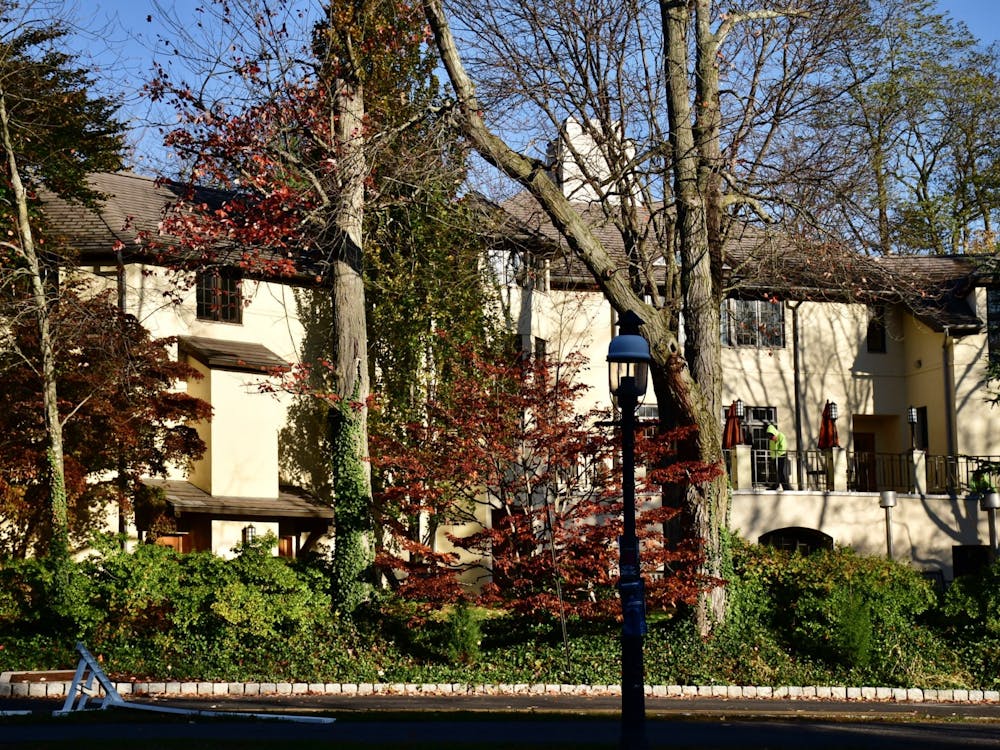Princeton is inextricably linked to the military and its veterans. University alumni have long played leading roles in military affairs, from the dedication of "Armistice Day" by President Woodrow Wilson, Class of 1879, to David Petraeus' GS '85 '87 ascension to generalship.
This isn't by coincidence. Joining the military is the highest form of being "in the Nation's service." Currently, the University is planning to expand its undergraduate class size by 10 percent. It already has a strong ROTC program for encouraging students to join the military, but is sorely lacking when it comes to accepting those who have already served. Last year, the University had only one veteran undergraduate. In light of Veterans Day last week, Princeton should strengthen its commitment to military ties by increasing the number of veteran students in these larger classes.
The new Mudd Library exhibit shows how countless Princetonians answered the call to serve by joining the military. In 1917, 99 percent of students were either actively training or serving in the military for World War I. Over two decades later, students went to war again, and 355 lost their lives in World War II while fighting to end tyranny. Alumni placed bronze memorial stars on dormitories to honor their sacrifices. The Mudd Library notes how, "the GI Bill's federal benefits, brought thousands of veterans to campus immediately following the war."
As wars continued from the late twentieth century into the twenty-first, Princeton students continued to serve in the armed forces. Take General Mark Milley '80, for example. After receiving commission in the Army through Princeton's ROTC program, he was deployed on missions ranging from peacekeeping in Bosnia to counter-terrorism in Afghanistan, and ascended through the ranks to become the Army's 39th Chief of Staff. But he's only one of countless other Tigers who excelled while "in the Nation's service."
While we often think of soldiers purely in terms of battlefield courage, some of their work is "in the service of humanity." As U.S. Army Captain Zachary Beecher '13 told Princeton Alumni Weekly, "I try to remember the kids I’ve met here in Iraq" and that, "they’ve lost so much. We owe it to them." In Afghanistan, soldiers are building schools and renovating hospitals to alleviate the war's damage. Meanwhile, the Air Force has been delivering relief supplies to Micronesia for the past 63 years.
Joining the military is a noble way to serve the nation. While one may disagree with the political reasons behind various wars, a soldier's primary duty is — as mentioned in the oath of enlistment — to, "support and defend the Constitution of the United States." They risk their lives to protect the document that secures our freedoms and democratic government. For this reason, the University should help more of the veterans who have protected our rights.
Being a soldier has never been easy. It means that a person has to prioritize the country's safety over one's own pursuits for a portion of their lives. Doing this requires enduring long deployments away from family, surviving the horrors of warfare, and then facing the challenges of reintegrating into society upon return home. Princeton has been offering admissions to U.S. military veterans, and it should expand this program to help address the latter problem.
But veterans' service doesn't end when they come home. Many join veterans organizations such as the Vietnam Veterans of America and Veterans for Foreign Wars (VFW). In fact, Franklin D'Olier, Class of 1898, served as the first national commander of The American Legion, now the world's largest veterans organization. These groups lead community service projects, advocate for federal policies, and encourage general citizenship through activities such as voting campaigns and teaching flag etiquette. Princeton's student body would surely benefit from these service-oriented individuals.
While celebrating Veterans Day this year, let's not forget Princeton's long symbiotic history with the military and its veterans. Their sacrifices have allowed us to freely pursue our academic interests at school. The University should support them by increasing its veteran population in its future plans. It's one way we can thank them for being "in the Nation's service."
Liam O’Connor is a sophomore from Wyoming, Del. He can be reached at lpo@princeton.edu.








